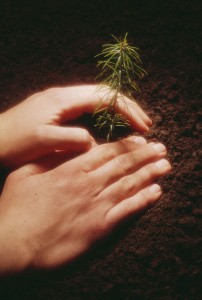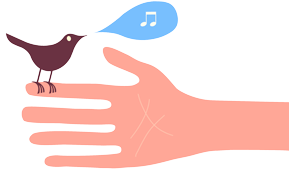 For trauma survivors and anyone else who is troubled by anxiety or panic, grounding skills are important. In the midst of feeling panicked or having a flashback or other trauma response, being able to ground yourself and reduce your anxiety can help you feel more in control and less crazy.
For trauma survivors and anyone else who is troubled by anxiety or panic, grounding skills are important. In the midst of feeling panicked or having a flashback or other trauma response, being able to ground yourself and reduce your anxiety can help you feel more in control and less crazy.
Grounding is not complicated. Here is the basic idea. There are three ways in which we experience the world:
- Emotions
- Thoughts
- Bodily sensations
I like to envision these three categories as three “boxes.” When you are having a trauma response or an anxiety attack (or feeling overwhelmed by any strong emotions), you are almost completely in the “emotions box.” Grounding yourself means devoting your attention to one of the other boxes until your emotions have calmed down. If you are focusing on your thoughts or on your body, you can’t be all in your emotions.
Some suggestions for how to get out of the emotions “box” and into one of the other “boxes”:
- Focusing on thoughts — Do something that makes you think. Do a crossword puzzle or Sudoku or a logic problem. Read an engaging book. Start at some high number and count backwards by 7s. Say the alphabet backwards. Name as many things as you can in a category (flowers, fruit, cars, rock stars). Name as many things as you can that are a particular color. Anything that requires you to think that you can’t do by rote.
- Focus on your bodily sensations — Do something that causes you to pay attention to your body. Focus on breathing slowly. Look around the room and really notice what things look like in detail. Listen closely to some music. Touch something and see how it feels — the grass, a rock, your chair, your pants. Eat one piece of fruit very slowly and pay attention to every bite. Stretch. Go for a walk and count your steps. Draw or paint. Do some gardening. Anything that reminds you that you have a body.
Some people naturally gravitate more easily towards their thoughts and some towards their body to ground themselves. Go with whatever seems easier. Experiment with different things and see what works best for you. Whatever allows you to calm your feelings is a good strategy. You might need to do a few different grounding exercises in a row before you feel grounded.
Note that I am not suggesting numbing yourself. Numbing yourself takes you out of awareness of what is going on for you. Grounding keeps you in awareness. It increases your awareness of your thoughts and your body.
The idea here is to allow you to regain your balance so that you can experience the world through your feelings, your thoughts, and your sensations. It might seem like being fully in your feelings would be healing — this is the idea of catharsis. However, in my experience, being completely in your emotions isn’t helpful. If you are not grounded, if you are so much in your feelings that you can’t think or pay attention to your body at all, then having your feelings is just overwhelming and doesn’t get you anywhere. This doesn’t mean that any time you feel anxious you need to ground yourself and distract yourself away from your anxiety. It just means that if you are so anxious that you can’t think or breathe, it is helpful to regain some balance before you try to experience and understand your anxiety. Try it and see how it works for you.
